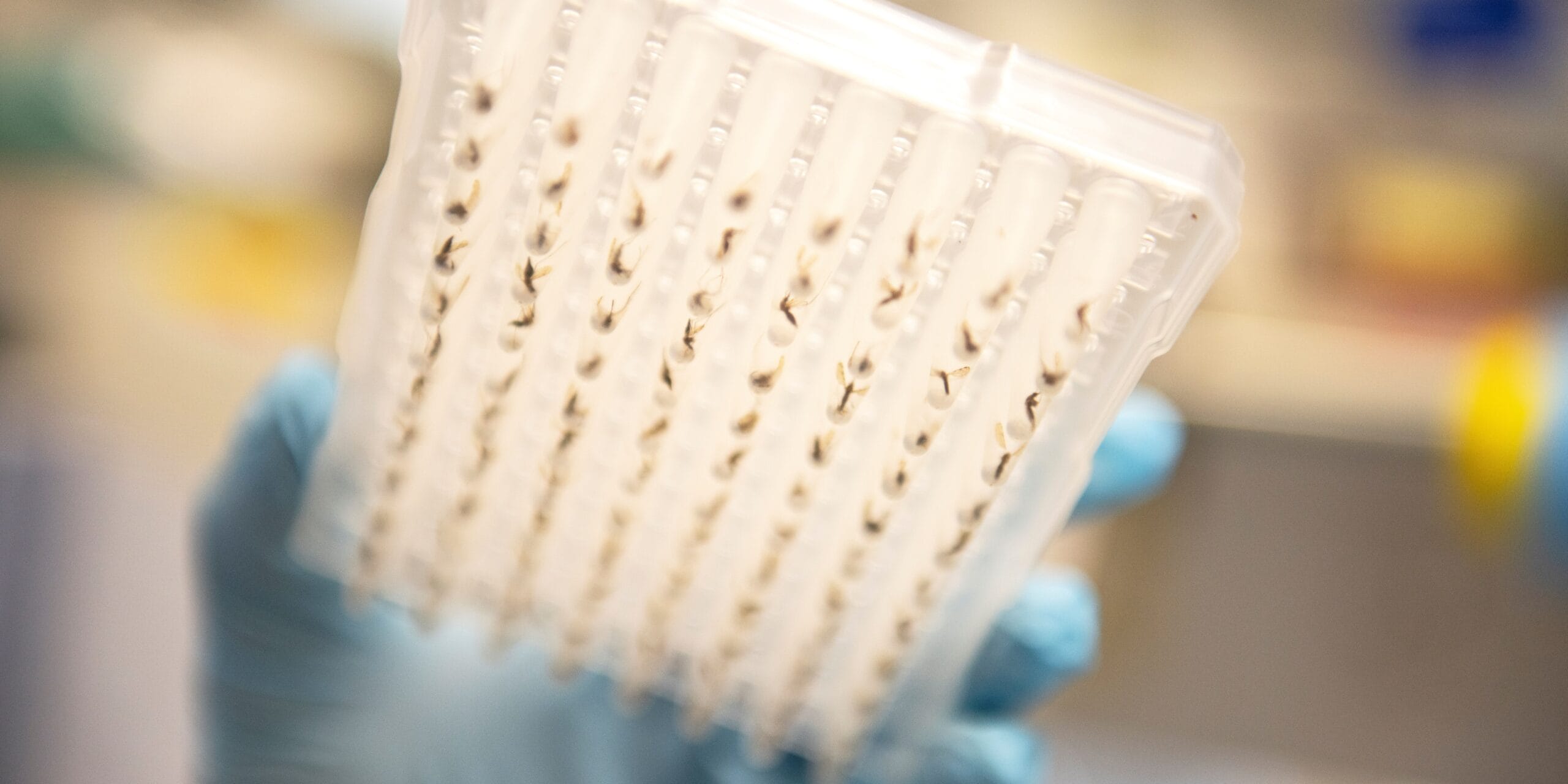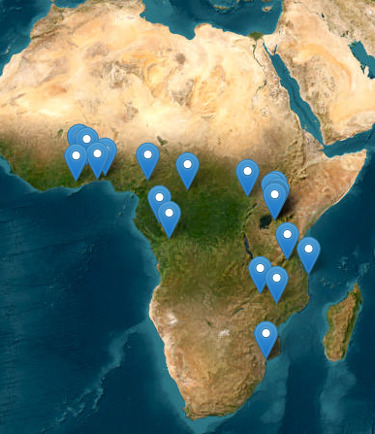The Af1.0 release provides a first baseline understanding of Anopheles funestus genetic diversity and population structure across Africa using 656 whole genome sequenced individuals. This data release is led by the MalariaGEN Vector Observatory Anopheles funestus Consortium. The Consortium includes researchers who have contributed samples, know-how, analyses, and expertise to the Project. The Consortium remains open to new members. To express interest in joining the Consortium either to contribute analyses to Phase 1 data or samples for later phases of the project, please fill in this form.
The MalariaGEN Vector Observatory Anopheles funestus data resource version 1.0 (Af1.0) contains single nucleotide polymorphism (SNP) calls, copy number variant (CNV) calls and SNP haplotypes from whole-genome sequencing of Anopheles funestus mosquitoes collected in Benin (37 samples), Cameroon (45 samples), Central African Republic (10 samples), Democratic Republic of Congo (77 samples), Gabon (40 samples), Ghana (67 samples), Kenya (81 samples), Malawi (18 samples), Mozambique (98 samples), Nigeria (41 samples), Tanzania (10 samples), Uganda (49 samples), and Zambia (43 samples).
Data sets
Af1.0 Contributing Studies
1229 – Anopheles funestus vector surveillance in Ghana
1231 – ANOSPP screening of Anopheles species and Plasmodium presence in malaria vectors
1232 – Anopheles funestus vector surveillance in Kenya
1235 – Anopheles funestus vector surveillance in Mozambique
1236 – Anopheles funestus vector surveillance in Tanzania
1240 – Anopheles funestus vector surveillance in Mozambique and the Democratic Republic of Congo
Af1.0 Terms of Use
The Af1.0 data release is led by the MalariaGEN Vector Observatory Anopheles funestus Consortium. The Consortium includes researchers who have contributed samples, know-how, analyses, and expertise to the project. The Consortium has released the project data prior to publication with the expectation that they will be valuable for many researchers. In keeping with Fort Lauderdale principles, researchers outside the Consortium may use the data for their own studies, but are expected to allow the Consortium to make the first presentations and to publish the first paper(s) that include global analyses of the data. Researchers inside the Consortium are permitted to evaluate the specific samples they contributed to the project separate from the Global analyses, but are expected to submit publications on these samples at the same time as or after the Global publications are submitted.
If you have any questions about the terms of use, please email support@malariagen.net. If you are planning to analyse Af1.0 data before the expiry of the publication embargo and/or would like to use it outside of the terms of use specified above, please also contact Dr Mara Lawniczak.
Af1.0 Data Access
Please visit the release page on the vector data guide to find out more about how to access the data.
Af1.0 Sample Locations
Mosquitoes were collected from across 13 countries – Benin, Cameroon, Central African Republic, Democratic Republic of Congo, Gabon, Ghana, Kenya, Malawi, Mozambique, Nigeria, Tanzania, Uganda, and Zambia.

